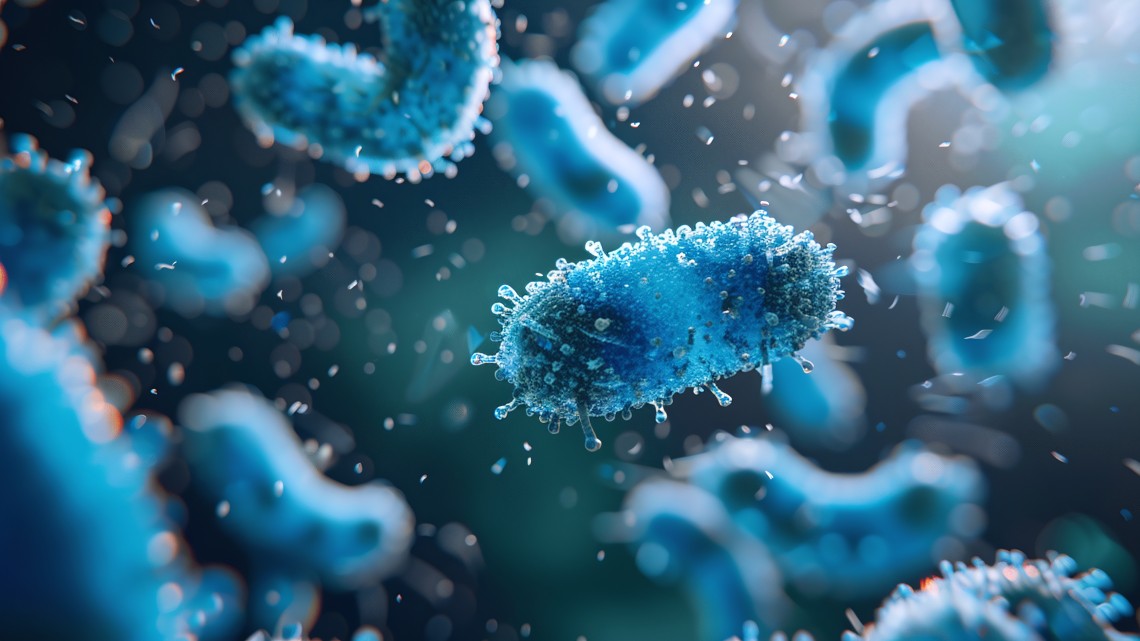News
The Weill Institute for Cell and Molecular Biology is pleased to announce that the REAP application portal is now open. Applications will be accepted through February 9, 2026. As scientific technologies continue to advance rapidly, the Research Expertise Advancement Program (REAP) supports Cornell life sciences laboratories in staying current with emerging tools and methods in cell and molecular biology. REAP provides full or partial funding (up to $3,000) for faculty, graduate students, and postdoctoral researchers to attend technology-focused workshops or courses, with the expectation that participants will share the acquired expertise with the broader Cornell community. For program details and to apply, visit: https://wicmb.cornell.edu/reap/ Save the Date Join Microbiology...
In a collaborative study, Roeder Lab helped develop a new computational pipeline to quantify chromosome copy number (ploidy) across tissues using microscopy images. The work, conducted with partners at the Max Planck Institute and Duke University, is now published in Cell Reports...
Postdoctoral scientist Lanxi Hu has been awarded the Weill Institute’s 2025 Sam and Nancy Fleming Research Fellowship for her innovative research on how plant tissues maintain shape and resilience under environmental stress. Her work in Arabidopsis morphogenesis not only advances fundamental biology but is also informing adaptive design in architecture and materials through interdisciplinary...
Smolka Lab researchers have developed a powerful new biosensor that reveals, in unprecedented detail, how and where kinases – enzymes that control nearly all cellular processes – turn on and off inside living...
Random cellular “noise” can, when combined with growth, generate surprisingly orderly patterns. Researchers from Roeder Lab have revealed that randomness itself can be a powerful driver of biological...
Weill Institute alumnus Bryce Brownfield, Ph.D. ’23 works with his startup team Forage Evolution to develop a new bacterium that can absorb DNA directly from its surroundings and incorporate it into its own genetic...
Baskin Lab researchers have found a new way to kill cancer cells by blocking how they read lipid signals, using a compound called NF14 that targets the PLEKHA4 protein, offering a more precise alternative to current lipid-pathway...
The event opens with an Emerging Scholars Symposium that gives early-career researchers an opportunity to present their work and engage with the broader life sciences community. On the second day, six leading scientists will deliver keynote talks on topics ranging from plant biology and climate solutions to cancer metastasis, bacterial cell biology, intracellular electrophysiology, reproductive molecular modifications, and the replication of primordial genetic material. The symposium underscores the Institute’s mission to promote interdisciplinary collaboration, advance basic research, and translate discoveries into innovations that benefit human...
A faculty-led committee, including Weill Institute Director Brian Crane and Professor Marcus Smolka, will explore how the university can evolve to best serve future generations while pursuing its core...
The Weill Institute is thrilled to host Nobel laureate Jack Szostak (Ph.D. ’77) as he returns to Cornell this fall. He will speak on “Replication of the Primordial Genetic Material” at 9:10 a.m. on Oct. 14 during the Weill Institute Symposium, an all-day life sciences event in the Biotechnology Building, Room...
Scott Emr, the Samuel C. and Nancy M. Fleming Professor Emeritus in the College of Arts and Sciences, has won the World Laureate Association Prize, one of the world’s highest-funded scientific...
Congratulations to Julien Morival, PhD, a postdoc in Weill Institute’s Lammerding lab, and 19 others selected for the 2025 Rising Stars in Engineering in Health Workshop. Now in its sixth year, this workshop is a joint effort from the biomedical engineering departments from Columbia University, The Johns Hopkins University, Cornell University and Boston...
Baskin Lab researchers have uncovered the surprising role played by a “three-tailed” fat molecule in cellular survival during heart attack and stroke: protecting the cells against damage when oxygen runs...
Antibiotic resistance is considered one of the most urgent health threats of our time. Research led by Doerr Lab postdoctoral fellow Megan Keller reveals how sugar-phosphate buildup disrupts cell wall synthesis, offering clues to fight drug...
Marcus Smolka, Weill Institute Professor in Molecular Biology and Genetics and Associate Vice Provost for Research and Innovation, among leaders spearheading a series of panels to highlight ways researchers can diversify their funding portfolios. Each panel focuses on a different strategy or funding...
A new study surrounding cell wall mechanics led by Roeder Lab researcher Si Chen works toward engineering plants and other organisms to grow into usable, biodegradable...
Antibiotic tolerance, the widespread ability of diverse pathogenic bacteria to sustain viability in the presence of typically bactericidal antibiotics for extended time periods, is an understudied stepping stone toward antibiotic resistance. The gram-negative pathogen Vibrio cholerae, the causative agent of cholera, is highly tolerant to β-lactam antibiotics. We previously found that the disruption of glycolysis, via deletion of pgi (vc0374, glucose-6-phosphate isomerase), resulted in significant cell wall damage and increased sensitivity toward β-lactam antibiotics. Here, we uncover the mechanism of this resulting damage. We find that glucose causes growth inhibition, partial lysis, and a damaged cell envelope in ∆pgi. Supplementation with N-acetylglucosamine, but not other carbon...
The Weill Institute for Cell and Molecular Biology at Cornell has selected eight outstanding graduate and post-doctoral students as recipients of this year’s Weill Institute Emerging Scholars Award, recognizing their exceptional achievements in molecular and cell biology science. Now in its second year, the national program invites applications from senior Ph.D. and postdoctoral students at institutions across the United States and Canada. Selected scholars are chosen through a competitive process based on the strength of their research, leadership potential, and dedication to fostering research...
The progranulin (PGRN) protein is tightly linked with TDP-43 proteinopathy in neurodegenerative diseases. However, how PGRN regulates TDP-43 proteinopathy remains unclear. In this study, we investigated the effect of PGRN loss on TDP-43 pathology in the TDP-43Q331K knock-in mice expressing an ALS-linked TDP-43 mutation at the endogenous level, and in the transgenic mice overexpressing human TDP-43 in neurons. We found that PGRN deficiency leads to mild glial activation and behavioral deficits in TDP-43Q331K mice without inducing typical TDP-43 pathology. RNA-seq analysis reveals upregulation of immune pathways and downregulation of myelination-related pathways in PGRN-deficient TDP-43Q331K mice. In addition, we observed myelination defects in human TDP-43 transgenic mice, but PGRN loss...
Jeremy Baskin received a $1 million grant from the Ono Pharma Breakthrough Science Initiative to study how chemical modifications to proteins, particularly lipidation, regulate autophagy—a critical cellular recycling process—with the goal of identifying new therapeutic strategies for diseases like Alzheimer’s, Parkinson’s, and...




















